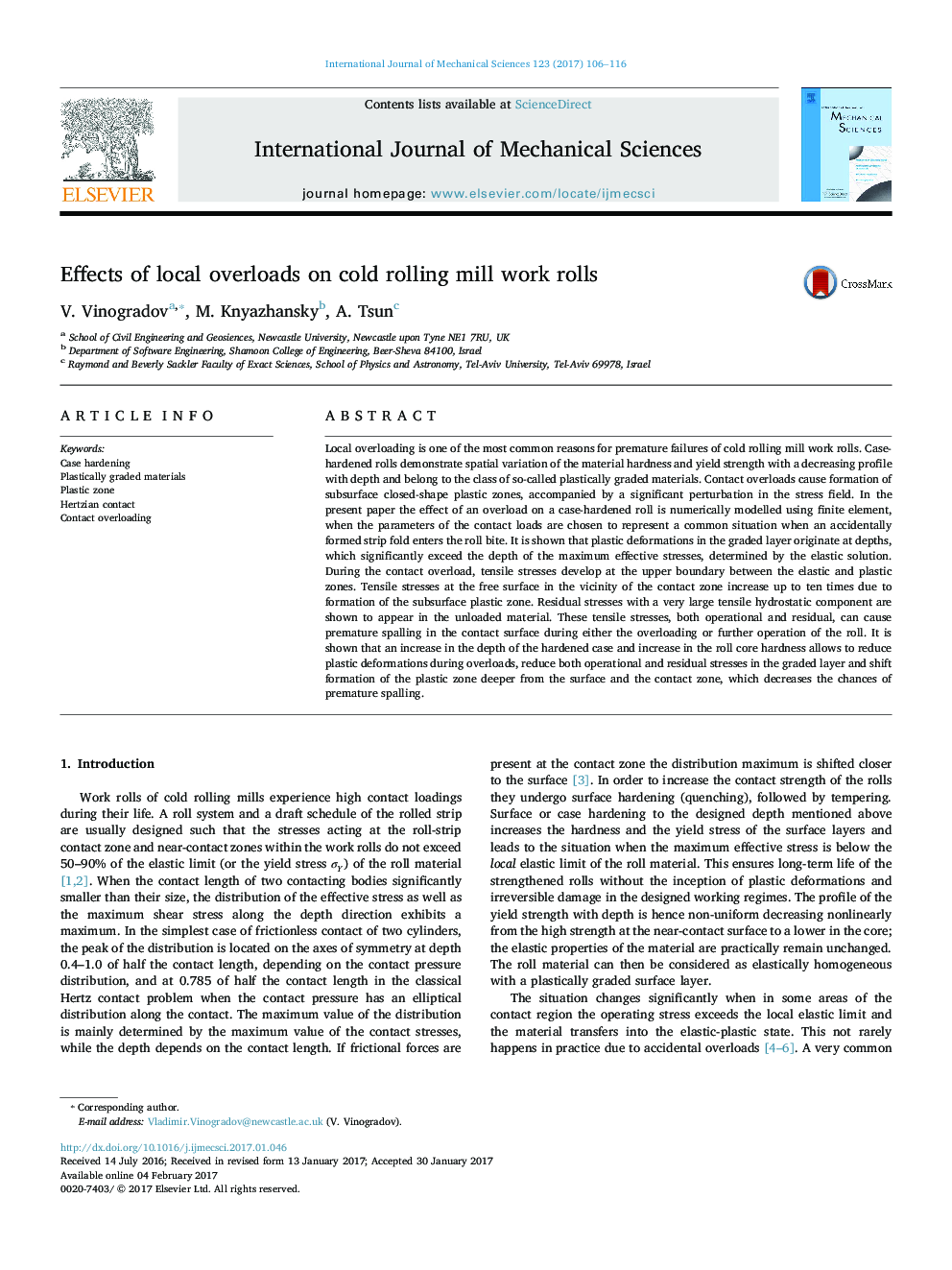| Article ID | Journal | Published Year | Pages | File Type |
|---|---|---|---|---|
| 5016113 | International Journal of Mechanical Sciences | 2017 | 11 Pages |
Abstract
Local overloading is one of the most common reasons for premature failures of cold rolling mill work rolls. Case-hardened rolls demonstrate spatial variation of the material hardness and yield strength with a decreasing profile with depth and belong to the class of so-called plastically graded materials. Contact overloads cause formation of subsurface closed-shape plastic zones, accompanied by a significant perturbation in the stress field. In the present paper the effect of an overload on a case-hardened roll is numerically modelled using finite element, when the parameters of the contact loads are chosen to represent a common situation when an accidentally formed strip fold enters the roll bite. It is shown that plastic deformations in the graded layer originate at depths, which significantly exceed the depth of the maximum effective stresses, determined by the elastic solution. During the contact overload, tensile stresses develop at the upper boundary between the elastic and plastic zones. Tensile stresses at the free surface in the vicinity of the contact zone increase up to ten times due to formation of the subsurface plastic zone. Residual stresses with a very large tensile hydrostatic component are shown to appear in the unloaded material. These tensile stresses, both operational and residual, can cause premature spalling in the contact surface during either the overloading or further operation of the roll. It is shown that an increase in the depth of the hardened case and increase in the roll core hardness allows to reduce plastic deformations during overloads, reduce both operational and residual stresses in the graded layer and shift formation of the plastic zone deeper from the surface and the contact zone, which decreases the chances of premature spalling.
Related Topics
Physical Sciences and Engineering
Engineering
Mechanical Engineering
Authors
V. Vinogradov, M. Knyazhansky, A. Tsun,
